featured
39 Attorneys General Tell Federal Lawmakers to Ban Hemp THC Products
Published
6 hours agoon
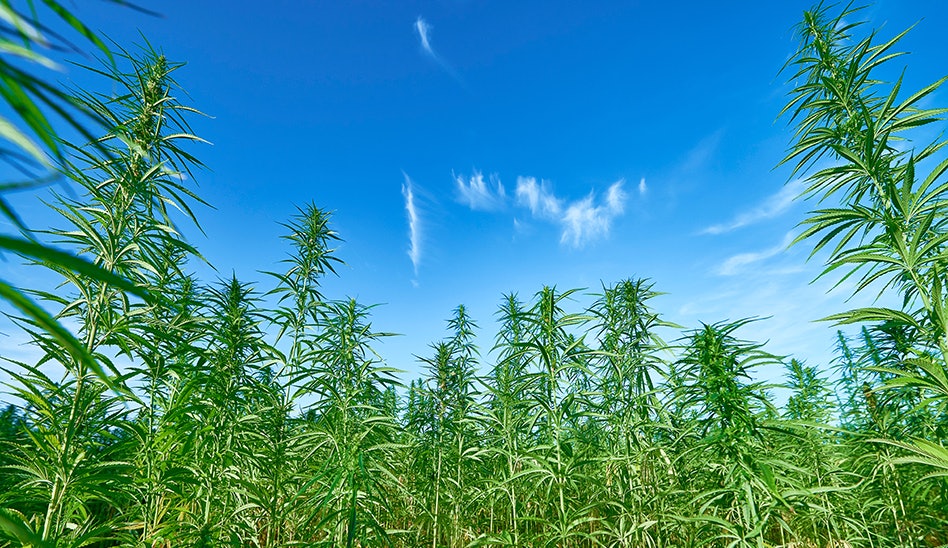
The chief law officers from 37 states and two U.S. territories sent a letter Oct. 24 to U.S. House and Senate committee leaders, asking them to stop “dangerous and intoxicating” hemp-derived THC products from being sold and manufactured.
The bipartisan coalition of 39 attorneys general, including those from Puerto Rico and the U.S. Virgin Islands, asked that Congress redefine hemp to close what many have termed an unintended “loophole” in the 2018 Farm Bill, which federally legalized the commercial cultivation of hemp.
Arkansas Attorney General Tim Griffin, along with his counterparts from Indiana (Todd Rokita), Connecticut (William Tong) and Minnesota (Keith Ellison), spearheaded the letter that they signed with other members of the National Association of Attorneys General (NAAG).
“Since the passage of the 2018 Farm Bill, hemp-derived THC products – often more potent than marijuana – have flooded the market due to a misinterpretation of the bill’s language,” Griffin said in a separate press release. “These synthetic cannabinoids, including delta-8, delta-10, THC-O, and others, are being sold in gas stations, convenience stores and online retailers across the country, frequently in packaging purposefully designed to appeal to children.”
The attorneys general sent the letter to the Appropriations and Agriculture committee chairs in both the Senate and House, including Sen. Susan Collins, R-Maine; Sen. John Boozman, R-Ark.; Rep. Tom Cole, R-Okla.; and Rep. Glenn “GT” Thompson, R-Pa.
The letter signers asked the congressional leaders to clarify the definition of hemp through the fiscal 2026 appropriations process or through the farm bill’s pending reauthorization to “leave no doubt that these harmful products are illegal.” The letter signers asked that Congress criminalize the sale and manufacture of intoxicating hemp products.
“Intoxicating hemp-derived THC products have inundated communities throughout our states due to a grievously mistaken interpretation of the 2018 Farm Bill’s definition of ‘hemp’ that companies are leveraging to pursue profits at the expense of public safety and health,” the attorneys general wrote. “Many of these products – created by manufacturers by manipulating hemp to produce synthetic THC – are more intoxicating and psychoactive than marijuana, a Schedule I controlled substance, and are often marketed to minors. Unless Congress acts, this gross distortion of the 2018 Farm Bill’s hemp provision will continue to fuel the rapid growth of an underregulated industry that threatens public health and safety and undermines law enforcement nationwide.”
In addition to the abovementioned states and territories, the letter was also signed by attorneys general from Alabama, Arizona, California, Colorado, Delaware, Georgia, Hawaii, Illinois, Iowa, Kansas, Louisiana, Maine, Maryland, Massachusetts, Mississippi, Missouri, Nebraska, Nevada, New Hampshire, New Mexico, New York, North Carolina, North Dakota, Ohio, Oklahoma, Pennsylvania, Rhode Island, South Carolina, South Dakota, Utah, Vermont, Virginia and Wyoming.
Sen. Mitch McConnell, R-Ky., who championed the federal legalization of commercial hemp cultivation in 2018 as a pathway for Kentucky’s struggling tobacco farmers to benefit from a new agricultural commodity, said in July that he had never intended for the farm bill to “open the door to the sale of unregulated, intoxicating, lab-made, hemp-derived substances with no safety framework.”
That admission came as 27 Senate Appropriations Committee members voted unanimously to approve a 136-page spending bill that included language to ban hemp-derived products containing synthetic compounds and/or quantifiable amounts of THC or THCA, or other cannabinoids that have similar effects on humans or animals. McConnell termed the language as a legislative fix to align with the original intent of the 2018 Farm Bill.
However, Sen. John Hoeven, R-N.D., who chairs the Appropriations Agriculture-Food and Drug Administration (FDA) subcommittee, notified reporters later in July that the hemp THC product language was struck by a manager’s amendment before final passage. The language was pulled because Sen. Rand Paul, R-Ky., threatened to block the entire legislation, which includes more than $27 billion in discretionary funding to support farmers, rural communities and nutrition programs, if the hemp language wasn’t stricken.
Paul, who supports regulation over prohibition, said in September 2024 that he hopes to protect the legalized hemp industry by preventing the federal government “from weighing down our farmers with unnecessary bureaucratic micromanaging.”
As many states have already implemented laws to regulate or ban consumable products containing hemp derivatives, many believe Paul’s pushback at the federal level has only delayed the inevitable. A finalized agriculture spending bill has yet to pass Congress.
“Congress never meant to legalize these products in the 2018 Farm Bill,” the 39 attorneys general wrote. “A proper interpretation of the farm bill’s hemp provision demonstrates that the entire synthetic THC industry rests on a foundation of illicit conduct. Clear direction from Congress is needed to shut down this industry before it metastasizes further into an even greater threat to public safety than it already is.”
While the bipartisan coalition said that the 2018 Farm Bill intended to provide an industrial hemp commodity for the fiber and grain markets, the legislation’s 0.3% delta-9 THC on a dry-weight basis definition established an inadvertent ambiguity that has allowed “bad actors” to exploit the American public with “dangerous drugs” through highly advanced chemical processes.
The attorneys general pointed to the often-used chemical process of converting nonintoxicating CBD from the hemp plant into intoxicating delta-8 THC. The letter writers also pointed to laboratory-created or altered compounds like delta-10 THC, THC-O, THCP and HHC, which are then infused “at high concentrations into a multitude of products that can intoxicate a person as severely as the most potent strains of cannabis sold on the illicit market.”
“In other words,” the attorneys general wrote, “industry actors have nefariously misinterpreted the farm bill’s legalization of low concentrations of hemp-derived delta-9 and the bill’s silence regarding hemp-derived THC products other than delta-9 to claim that the farm bill allows them to produce and sell various synthetic cannabinoids regardless of the chemicals’ potency and psychoactive effects.”
The attorneys general said these “Frankenstein THC” products play by their own set of rules – including age restrictions, labeling standards and testing requirements – and have led to “stark and severe” public health consequences.
In Indiana, where medical and adult-use cannabis programs remain prohibited, total cannabinoid and analog exposures reported to poison control centers increased 41% between 2022 and 2024, with pediatric exposures under age 5 rising 46% and exposures among children aged 6–12 increasing 62%, according to the state’s Department of Health.
Indiana Attorney General Todd Rokita was among the four signers who spearheaded the letter.
State-level efforts to rein in the hemp-derived cannabinoid product marketplace are not enough, according to the bipartisan coalition.
“Such efforts can only lead to an uneven and ineffectual patchwork of bans and regulations that differ from state to state and will not stop the flood of mail-order THC products from streaming through interstate commerce,” they wrote. “Congress must act to salvage the 2018 Farm Bill’s laudable legalization of commercial hemp from the psychoactive hemp industry’s spoliation of the bill’s hemp provision.”

Author: mscannabiz.com
MScannaBIZ for all you Mississippi Cannabis News and Information.
You may like
-


How Cannabis Can Help Combat Fall Respiratory Ailments
-
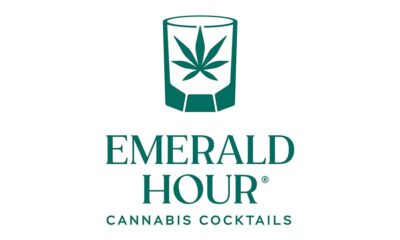

The Boston Beer Co. Launches Emerald Hour Gummies in Canada
-
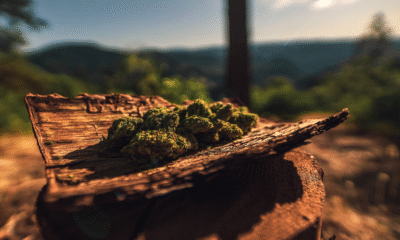

The High Times Guide to THCA: What It Is, How It Works, and Why Everyone’s Talking About It
-
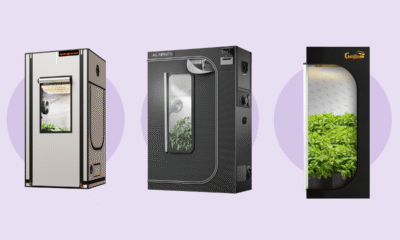

The best grow tents of 2025
-
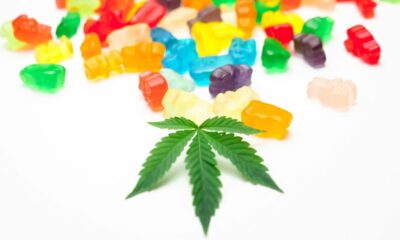

Kansas Lawmakers Discuss Legality Of Intoxicating Hemp THC Products
-


Guess What Is Threading Its Way Back To Being Popular
featured
How Cannabis Can Help Combat Fall Respiratory Ailments
Published
15 minutes agoon
October 27, 2025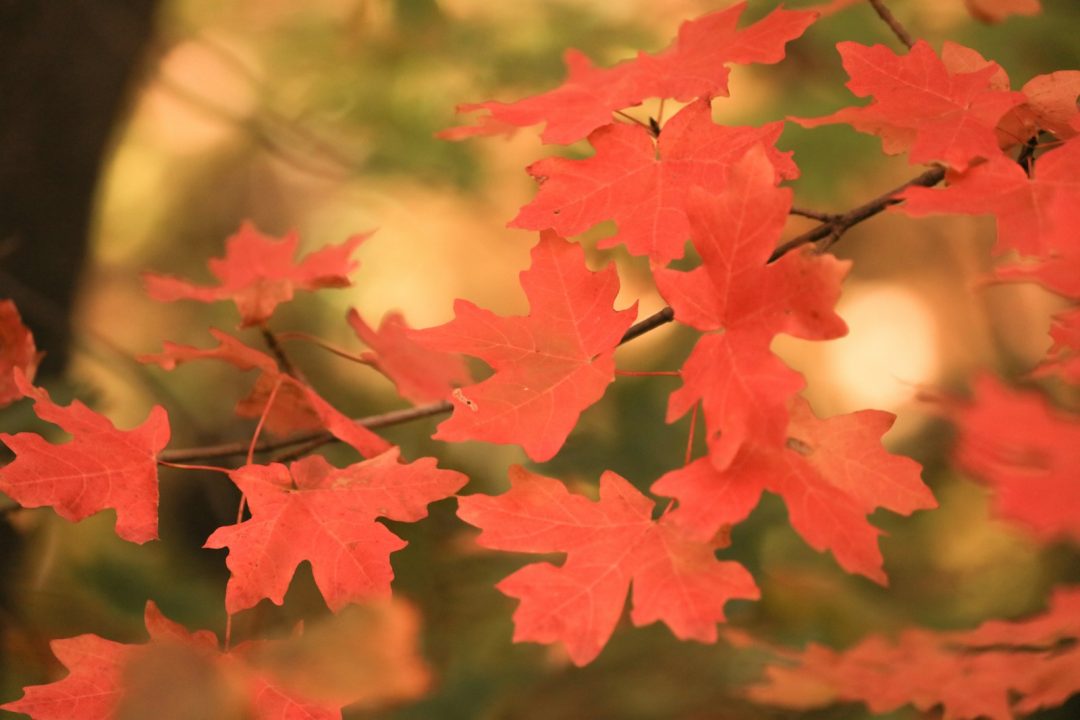
How cannabis can help combat fall respiratory ailments easing congestion, inflammation, and seasonal discomfort.
Autumn is here, which means pumpkin spice lattes, crunchy leaves and football. It also means a new set of illnesses, here is how cannabis can help combat fall respiratory ailments. Leaving summer behind and a change in weather and social environments means the inevitable flu, cold, and RSV season. While most of us reach for chicken soup or a hot toddy, more Americans are turning to cannabis to ease symptoms and even cut back on alcohol.
RELATED: Fall For These Autumn Cocktails
Before you light up, here’s an important distinction: smoking cannabis can irritate your lungs and worsen coughs and sore throats. But non-smoking options—think gummies, edibles, and tinctures—may help you feel better without the harsh hit to your respiratory system.
Cannabidiol (CBD), a non-psychoactive compound in cannabis, has natural anti-inflammatory properties. This means it may help calm swollen airways and relieve some of the stuffy, congested feeling. And for those achy bodies arriving with colds or the flu, both CBD and THC can offer mild pain relief.
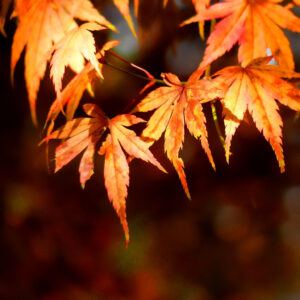
Sleep is another key ingredient for recovery, and cannabis may help here too. THC can promote relaxation and improve sleep quality, letting your body fight off infection while you catch up on Zzzs.
Cannabis gummies are also becoming a go-to for folks looking to cut back on alcohol. Swapping a post-work beer or cocktail for a gummy can deliver relaxation and stress relief without the hangover, liver stress, or calorie load that comes with booze.
Some studies suggest cannabis can reduce alcohol consumption when used responsibly, and anecdotal evidence from Reddit and wellness blogs backs this up. People report better sleep, a calmer mood, and an easier time sticking to lower-alcohol routines.
RELATED: The Connection Between Country Music And Cannabis
If you’re new to cannabis, start low and go slow. Gummies and edibles make dosing easy, and you can choose products higher in CBD for inflammation relief or THC for sleep and relaxation. Avoid smoking or vaping while sick—your lungs will thank you.
Cannabis isn’t a miracle cure for colds, the flu, or RSV, but it may help ease symptoms and reduce alcohol use in a pinch. Pair it with plenty of fluids, rest, and basic cold-season hygiene, and you could have a smoother autumn than ever before.

Author: mscannabiz.com
MScannaBIZ for all you Mississippi Cannabis News and Information.
featured
The Boston Beer Co. Launches Emerald Hour Gummies in Canada
Published
1 hour agoon
October 27, 2025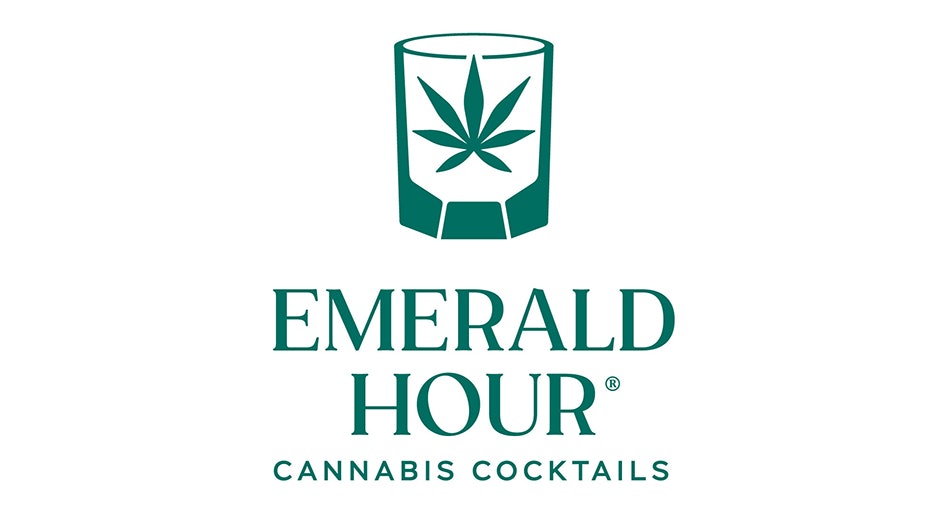
[PRESS RELEASE] – TORONTO, Oct. 27, 2025 – Emerald Hour, the nonalcoholic cannabis cocktail brand from The Boston Beer Co., announced the launch of new cocktail-inspired THC gummies, infused with live rosin and solventless cannabis diamonds.
Now available at dispensaries across Ontario and Alberta, each Emerald Hour gummy is 100% vegan and contains 5 milligrams of THC. Two Emerald Hour craft cannabis gummies are packaged in discreet purse- and pocket-friendly two-pack containers.
Emerald Hour’s first gummy is Peach & White Grape, a flavorful nod to the refreshing brunch classic.
“Boston Beer Company is renowned for crafting high-quality beverages, and we bring that same commitment to excellence to our gummies,” said Paul Weaver, the Toronto-based head of cannabis for Boston Beer. “Emerald Hour gummies are made for the discerning cannabis consumer. Infused with live rosin and solventless diamonds, they deliver a full-spectrum cannabis experience in pocket-friendly, sustainable packaging.”
Emerald Hour Cannabis Cocktails
Emerald Hour gummies are an expansion of the brand’s existing lineup of ready-to-drink, nonalcoholic cannabis cocktails. Emerald Hour beverages launched in January 2025 and are now available in more than 600 dispensaries across Canada. Sold in 222-milliliter mini-cans, each cannabis cocktail contains 10 milligrams of THC and offers a premium, nonalcoholic experience.
Emerald Hour’s current beverage lineup includes:
- Agave, Lime & Sea Salt
- Cranberry & Citrus
- Ginger & Lime
- Lime & Mint
Promoting Responsible Consumption
Responsible cannabis consumption means being mindful not only of your intake, but also of how you store your products. To celebrate the launch of Emerald Hour gummies, the brand is partnering with Ally, a women-owned brand focused on secure, stylish storage, to educate consumers around a new way to preserve their cannabis experience. Ally containers are smell-proof and feature a three-digit lockable code, keeping your cannabis safe, discreet and protected. Consumers can explore Ally at www.theallyco.com.
Visit EmeraldHourCannabis.com or follow @DrinkEmeraldHour on Instagram to locate your nearest dispensary and to find the latest updates on Emerald Hour’s innovative beverages and gummies.

Author: mscannabiz.com
MScannaBIZ for all you Mississippi Cannabis News and Information.
featured
The High Times Guide to THCA: What It Is, How It Works, and Why Everyone’s Talking About It
Published
2 hours agoon
October 27, 2025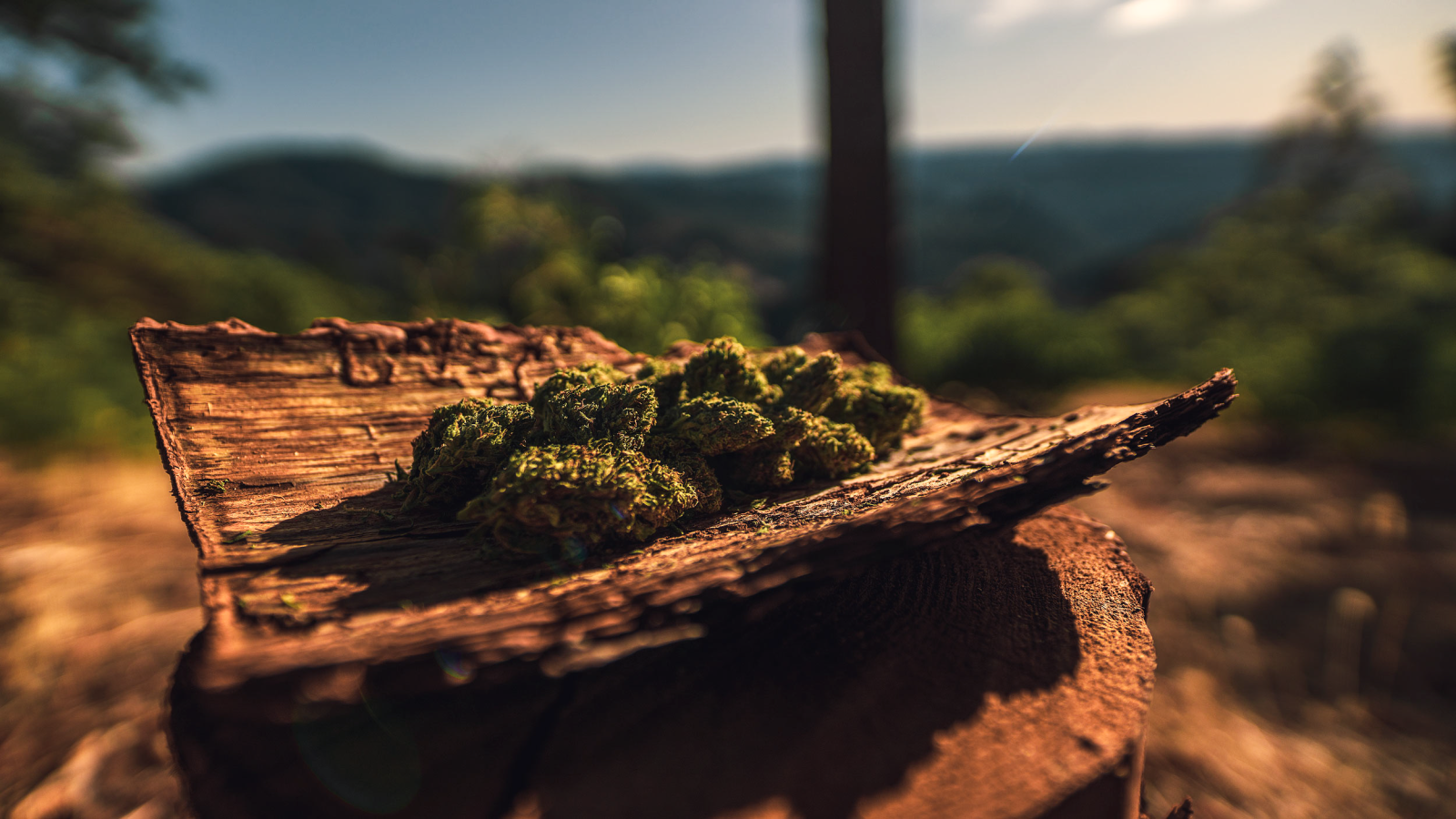
![]()
Depending on who you ask, THCA is either the future of cannabis or the latest hemp loophole. It’s the molecule turning “legal” hemp flower into a legitimate high—the chemistry trick that’s reshaping dispensary menus and blurring the line between hemp and weed.
Once a quiet lab term, THCA is now everywhere: in jars, pre-rolls, vapes, and hashtags. It’s science and street smarts rolled into one—proof that the plant always finds a way.
So what is THCA, really? How does it work? And why is everyone suddenly talking about it? Let’s dig in.
What Is THCA?
THCA stands for tetrahydrocannabinolic acid, the raw, non-psychoactive form of THC found naturally in cannabis plants. In living or freshly harvested flower, most of the THC actually exists as THCA. It’s a compound that won’t get you high until heat enters the equation.
THCA is the plant’s way of storing THC in a dormant state. When you smoke, vape, or bake, the heat triggers decarboxylation, the chemical reaction that removes a carbon group and transforms THCA into the THC molecule we all know and love.
In short:
- Raw cannabis = high in THCA, non-intoxicating
- Heated cannabis = THCA converts to THC, psychoactive
That’s the big secret behind “THCA flower.” It’s cannabis rich in THCA and low in delta-9 THC when tested, making it technically compliant hemp under federal law. But when you spark it, it becomes the real deal.
THCA vs. THC: What’s the Difference?
While they share nearly identical structures, THCA and THC behave very differently. The distinction comes down to that little extra carboxyl group (–COOH) on the THCA molecule.

In its raw state, THCA doesn’t activate the CB1 receptors that create the “high.” But apply heat, and that small structural change flips the switch—turning potential energy into psychoactive power.
The Science of Decarboxylation
Decarboxylation is what transforms THCA into THC. Think of it like roasting coffee beans—same ingredients, new chemistry.
When cannabis is heated—whether in a joint, a vape, or an oven—THCA loses its extra carbon dioxide molecule (CO₂). That small change alters its shape just enough to let it fit perfectly into the brain’s cannabinoid receptors.
General temperature guide:
- Light decarb: ~200°F (93°C) for 45–60 minutes
- Full conversion: ~220°F (104°C) for 30–45 minutes
- Overheating (>250°F) starts degrading THC into CBN, which delivers a heavier, sleepier effect
Most consumers don’t need to worry about this science because their lighter or vape pen does the job in real time. But understanding decarboxylation helps explain why THCA flower is legally hemp, yet functionally weed once it’s smoked.
Is THCA Legal?
The legality of THCA is a tangled web. What’s allowed often depends on when it’s measured, where, and under what definition.
Federal Baseline: The 2018 Farm Bill & “Hemp” Definition
The 2018 Farm Bill legalized hemp (and derivatives) if delta-9 THC (on a dry weight basis) is ≤ 0.3%. That law does not explicitly define limits on THCA. Because THCA is not delta-9 THC itself, some interpreted that high-THCA, low-THC hemp is permissible.
However, regulators frequently require a “total THC” test, meaning delta-9 THC + THCA×0.877 (a conversion factor). Under that regime, high-THCA products may push total THC over 0.3%, making them non-compliant.
In recent moves, federal proposals have surfaced that seek to redefine “hemp” by total combined THC (including THCA) rather than just delta-9 THC. If passed, many THCA-rich products would become illegal even if delta-9 THC is low.
Some legal analysis and DEA commentary suggest THCA might be considered under the analog doctrine (treated like THC) because it readily converts, making its regulatory status vulnerable.
State by State: Patchwork Rules
States vary wildly.
- Some states explicitly treat THCA as controlled or restrict its sale.
- Others allow THCA flower under hemp laws if delta-9 THC remains low at sale time.
- In certain jurisdictions, lawmakers have pushed bans or stricter rules on intoxicating hemp derivatives that include THCA products.
- Legal observers warn that the “loophole era” of THCA may be closing, with states ramping enforcement.
So: THCA may be legal in one state, restricted in another, and borderline in the next. Always check local law—and assume things could change rapidly.

Why THCA Flower Is Everywhere Right Now
THCA flower exploded in popularity because it delivers a familiar experience—the taste, smell, and potency of real cannabis—without technically breaking federal hemp limits.
For consumers in states without recreational dispensaries, it’s a game-changer. For brands, it’s a way to innovate legally. And for the cannabis industry as a whole, it’s a fascinating snapshot of how quickly science, law, and culture adapt to each other.
In other words: THCA flower sits right at the intersection of chemistry and creativity — the same space cannabis has always thrived in.
How to Use THCA
Smoking or Vaping: The most common method, and the one that converts THCA to THC instantly. Expect effects similar to standard cannabis, varying by strain and potency.
Edibles: You can decarboxylate THCA flower in the oven (at around 220°F for 30–40 minutes) before infusing it into butter or oil. Once decarbed, it behaves like regular THC in your edibles.
Raw Consumption: If you eat or juice raw THCA flower without heating, you won’t get high, but you may still experience some of the potential wellness benefits linked to cannabinoids. Some people add it to smoothies or salads for this reason.
Topicals: THCA-infused balms and salves may offer localized support for inflammation or muscle soreness without any psychoactive effects.
Does THCA Get You High?
Here’s the simplest answer:
- Raw THCA: No, it’s non-intoxicating.
Heated THCA: Yes, because it becomes THC.
When you smoke, vape, or cook it, THCA undergoes decarboxylation, converting into the same psychoactive molecule found in traditional cannabis. That’s why THCA flower can feel just like dispensary weed once you light up.
Potential Benefits of THCA
Research on THCA is still in early stages, but preclinical studies and anecdotal reports suggest several areas of promise:
- Anti-inflammatory: THCA may help regulate inflammatory pathways.
- Neuroprotective: Studies have explored its potential role in neurodegenerative diseases.
- Anti-nausea: Early data hints that THCA might reduce nausea or stimulate appetite.
- Antioxidant properties: THCA has been shown to neutralize free radicals.
Many of these effects overlap with THC and CBD, but more research is needed before any definitive medical claims can be made. What’s exciting is that THCA seems to have distinct physiological effects in its raw form, separate from THC’s psychoactivity.
Reading a COA (Certificate of Analysis): What to Look For
Every legitimate THCA product should come with a lab report. Understanding it protects you from buying mislabeled or non-compliant flower.
Here’s how to read it:
- THCA %: The primary active precursor.
- Δ9-THC %: Must be below 0.3% for hemp compliance.
- Total THC: Should be calculated as THC + (THCA × 0.877).
- Lab credentials: Look for ISO-certified labs using HPLC methods.
- Date and batch: Recent and traceable.
- Contaminant screens: Ensure it’s tested for pesticides, heavy metals, and microbes.
Pro tip: High-quality THCA flower usually tests between 20–30% THCA with minimal Δ9. Anything drastically outside that range warrants scrutiny.
How to Store THCA
THCA is sensitive to heat, light, and oxygen. Over time, it can convert into THC or degrade into CBN—both of which change the product’s potency and character.
Storage checklist:
- Keep in airtight, opaque glass jars.
- Store in a cool, dark place — ideally below 70°F (21°C).
- Avoid constant opening/closing or handling.
- For long-term storage, refrigeration (sealed) can help, but allow jars to warm to room temp before reopening.
Proper storage keeps your flower fresh, flavorful, and compliant.

Is THCA Safe?
THCA and THC are both generally well-tolerated, but quality control is everything. Stick with products that:
- Are lab-tested by accredited facilities
- Are free from contaminants
- Clearly list cannabinoid content and source
Because THCA is often sold under hemp law, regulation can be uneven. That’s why buying from trusted, transparent brands—like High Times’ own THCA line—is key.
The High Times Takeaway
The THCA boom represents more than a chemistry lesson—it’s a glimpse into cannabis’s constant evolution. As regulators refine definitions and markets mature, THCA may bridge the gap between hemp and traditional cannabis, giving consumers more choice while pushing science and policy forward.
Whether it remains a legal workaround or becomes fully integrated into the regulated cannabis space, one thing’s certain: THCA has changed the game—and it’s not fading anytime soon.
If you’re curious about the chemistry or just want to experience it yourself, THCA flower offers a way to explore the full spectrum of cannabis, legally, for now.
You can check out High Times’ new line of premium THCA flower, lab-tested, potent, and grown with integrity. Call it hemp, call it weed—we just call it progress.
Frequently Asked Questions
Is THCA legal everywhere in the U.S.?
Not exactly. Federally, it’s legal if derived from hemp with less than 0.3% delta-9 THC, but some states have introduced restrictions. Always check your local regulations.
Will THCA flower get me high?
Not until it’s heated. Once decarbed, it delivers the same psychoactive experience as THC.
Can THCA cause a positive drug test?
Yes. Once consumed with heat, THCA becomes THC—and your body will metabolize it the same way.
Is THCA the same as CBD?
No. CBD doesn’t convert to THC and remains non-intoxicating regardless of heat. THCA can become psychoactive.
What’s a good THCA percentage?
Top-shelf THCA flower usually ranges between 20–30% THCA. Anything above that is considered potent.
Does THCA have medical benefits?
Early research suggests possible anti-inflammatory and neuroprotective effects, but no official medical uses have been confirmed yet.
What’s the difference between THCA and marijuana?
They’re the same plant. The legal distinction depends on delta-9 THC levels — hemp (low THC) vs. marijuana (high THC).
<p>The post The High Times Guide to THCA: What It Is, How It Works, and Why Everyone’s Talking About It first appeared on High Times.</p>

Author: mscannabiz.com
MScannaBIZ for all you Mississippi Cannabis News and Information.

How Cannabis Can Help Combat Fall Respiratory Ailments

The Boston Beer Co. Launches Emerald Hour Gummies in Canada

The High Times Guide to THCA: What It Is, How It Works, and Why Everyone’s Talking About It

The best grow tents of 2025

Kansas Lawmakers Discuss Legality Of Intoxicating Hemp THC Products

Guess What Is Threading Its Way Back To Being Popular

39 Attorneys General Tell Federal Lawmakers to Ban Hemp THC Products

Now Is the Time to Embrace, Not Abandon, Cannabis Activism

No One Is Giving Your Kids Marijuana Edibles in Their Halloween Candy

Florida Case On Medical Marijuana Patients’ Gun Rights Is On Hold As Supreme Court Weighs Underlying Issue

CULTA Appoints Cannabis Industry Veteran Joseph Andreae as CEO

The Creature from the Black Leather Lagoon

Cannabis industry case challenging prohibition hits Supreme Court (Newsletter: October 27, 2025)

I Worked a Day as a Budtender in Brooklyn: Here’s What I Learned

Trump’s ‘Stupid’ Drug War Killings Put Military In Untenable Position, Former GOP Attorney General Of Idaho Says (Op-Ed)

Oregon Officials Seek To Dismiss Psilocybin Access Lawsuit From Homebound Patients

South Dakota Medical Marijuana Advocates Alarmed After Lawmakers Give Prohibitionists A Platform

What Levi Strauss Can Teach Us About Craft and Cannabis

Michigan Lawmakers Consider Bills To Change Legal Marijuana Possession Limits And Alter Industry Disciplinary Rules

Bad Stoner Horror: The 10 Worst-Rated 420 Scary Movies

Vee the Traveling Cannabis Writer Unveils First Book in Cannabis Legacy Series – Ganjapreneur

[Video] G Herbo: Snoop Rolled My Blunt and Let Me Hit It, Smoking A Zip a Day, Chicago Munchies (Weird) and What’s Next

Marijuana Companies Ask U.S. Supreme Court To Take Up Case Challenging Constitutionality Of Federal Prohibition

The Odds Of The Feds Making A 2025 Cannabis Change

Alert: Department of Cannabis Control updates data dashboards with full data for 2023

Connecticut Appoints The US’s First Cannabis Ombudsperson – Yes there is a pun in there and I’m Sure Erin Kirk Is Going To Hear It More Than Once!

5 best CBD creams of 2024 by Leafly

Recreational cannabis on ballot for third time in South Dakota

EU initiative begins bid to open access to psychedelic therapies
New Study Analyzes the Effects of THCV, CBD on Weight Loss

Free delta-9 gummies from Bay Smokes

5 best autoflower seed banks of 2024 by Leafly

Discover New York’s dankest cannabis brands [September 2024]

May 2024 Leafly HighLight: Pink Runtz strain

Press Release: CANNRA Calls for Farm Bill to Clarify Existing State Authority to Regulate Hemp Products

5 best THC drinks of 2024 by Leafly

Local medical cannabis dispensary reacts to MSDH pulling Rapid Analytics License – WLBT

6 best CBD gummies of 2024 by Leafly

Curaleaf Start Process Of Getting Their Claws Into The UK’s National Health System – With Former MP (Resigned Today 30/5/24) As The Front Man

Horn Lake denies cannabis dispensary request to allow sale of drug paraphernalia and Sunday sales | News

5 best delta-9 THC gummies of 2024 by Leafly

The Daily Hit: October 2, 2024

Mississippi city official pleads guilty to selling fake CBD products

Nevada CCB to Accept Applications for Cannabis Establishments in White Pine County – “Only one cultivation and one production license will be awarded in White Pine County”

Weekly Update: Monday, May 13, 2024 including, New Guide for Renewals & May Board meeting application deadline

5 best THCA flower of 2024 by Leafly

6 best hemp pre-rolls of 2024 by Leafly

PRESS RELEASE : Justice Department Submits Proposed Regulation to Reschedule Marijuana
Trending
-

 California Cannabis Updates1 year ago
California Cannabis Updates1 year agoAlert: Department of Cannabis Control updates data dashboards with full data for 2023
-

 Breaking News1 year ago
Breaking News1 year agoConnecticut Appoints The US’s First Cannabis Ombudsperson – Yes there is a pun in there and I’m Sure Erin Kirk Is Going To Hear It More Than Once!
-

 best list1 year ago
best list1 year ago5 best CBD creams of 2024 by Leafly
-

 Business1 year ago
Business1 year agoRecreational cannabis on ballot for third time in South Dakota
-

 Business1 year ago
Business1 year agoEU initiative begins bid to open access to psychedelic therapies
-

 cbd1 year ago
cbd1 year agoNew Study Analyzes the Effects of THCV, CBD on Weight Loss
-

 Bay Smokes1 year ago
Bay Smokes1 year agoFree delta-9 gummies from Bay Smokes
-

 autoflower seeds1 year ago
autoflower seeds1 year ago5 best autoflower seed banks of 2024 by Leafly


